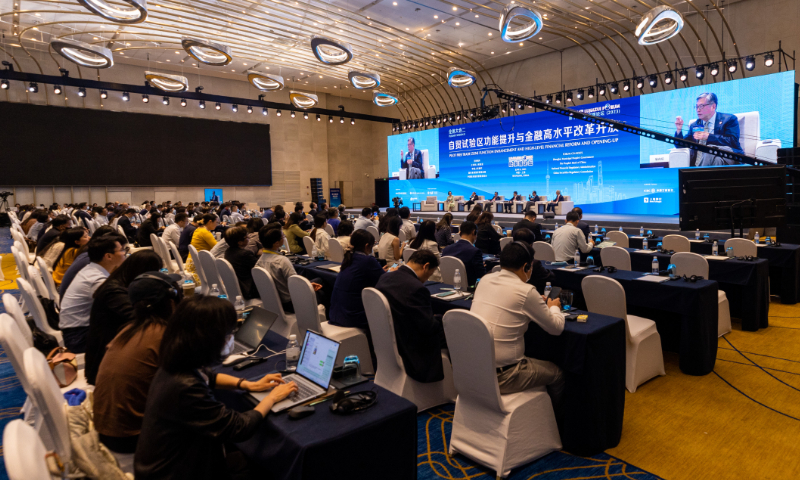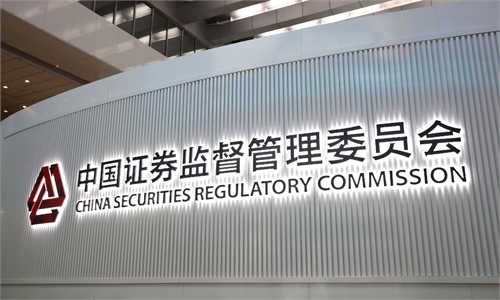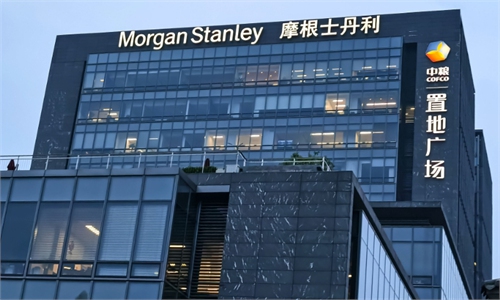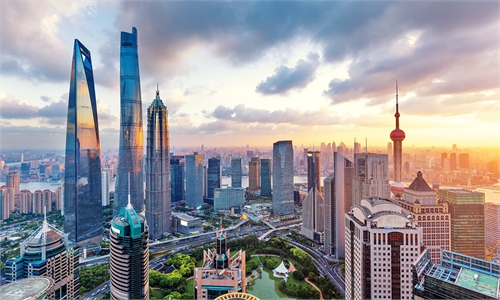China's financial opening-up gains momentum, as Shanghai is set to launch international reinsurance trading market
Authorities vow to eliminate 'supervisory blind spots' and tackle law violations

The 14th Lujiazui Forum is held in Shanghai on June 8, 2023. The Lujiazui Forum runs through June 9. Photo: VCG
Opening-up is China's fundamental national policy and the financial sector opening-up will only deepen, a senior government official said on Thursday, noting that the country will give equal attention to "going global," and provide internationalized business environment for foreign investors.Li Yunze, director of the National Financial Regulatory Administration (NFRA), made the remarks in a speech delivered to the 14th Lujiazui Forum held in Shanghai on Thursday.
"With regard to wealth management, green finance, health and elderly care, we encourage and welcome qualified foreign institutions to set up business ventures in China," Li said, noting that China has rolled out more than 50 opening-up measures including the removal of foreign ownership caps.
He said a joint venture between BNP Paribas Asset Management and an asset management subsidiary of Agricultural Bank of China will start operation in Shanghai soon.
The NFRA and the Shanghai government will announce details for boosting the development of a global reinsurance center in Shanghai, and launch an international reinsurance trading market.
The launch of the reinsurance trading market will be another move in financial opening-up in addition to the banking, securities and bond markets, said Xi Junyang, a professor at the Shanghai University of Finance and Economics, citing the Stock Connect mechanism, the Northbound Trading of Swap Connect and the registration-based IPO system.
"The new move will give foreign capital more channels to access China's huge market and meet its demand for liquidity management," Xi said.
Introducing international financial institutions and foreign capital will help deepen the supply-side structural reform of China's financial sector and contribute to the country's high-quality development and the building of a new development paradigm, Wang Peng, a research fellow at the Beijing Academy of Social Sciences, told the Global Times on Thursday.
As of the end of March this year, the balance of the yuan-denominated assets held by foreign entities in China hit 9.88 trillion yuan ($1.39 trillion), a 1.3-fold increase since 2017, according to data released by the People's Bank of China, the central bank.
Meanwhile, 41 foreign-invested banks have been incorporated in China, with their total number of business offices in the country hitting 911 and total assets worth 3.76 trillion yuan. A total of 68 foreign-funded insurance institutions and 79 representative offices have been established in China, with their total assets amounting to 2.26 trillion yuan, official data showed.
At the end of May, JPMorgan Chase CEO Jamie Dimon made his first visit to China in four years, and he attended a two-day summit convened by JPMorgan. The two-day summit attracted more than 2,600 participants from 37 countries and regions that aim to expand their investment in China.
"In a volatile international environment, China's stable and normal monetary policies, upward economic growth trend and continuous opening-up will provide diversified opportunities and choices for international investors," Wang said, noting that yuan assets are expected to become a safe haven.
Li said in his speech that China's financial industry is operating in a stable manner at present, with risks largely under control.
Financial supervision should be more forward-looking, precise, effective and better coordinated to "eliminate any gaps or blind spots". Chaos in the financial market should be rectified, while violations of the law should be severely punished, Li said.
Analysts said that China is strengthening financial supervision to shore up industry security.
"Over the past several years, the fin-tech sector has encountered some challenges and problems that affected the healthy development of the financial sector. We should be alert to spillover of financial risks from the US and other regions," Wang said.
In response to Western media hyping China's crackdown on illegal activities by foreign companies, Xi said that the authorities' move target only individual firms that violate laws, for example, US chipmaker Micron Technology Inc., and China always welcomes quality foreign institutions and international capital.
Schroder Fund Management (China) Co announced on Thursday that it has been granted a public fund business license by the China Securities Regulatory Commission to begin operations as a wholly foreign-owned public fund management company in the Chinese mainland.
"China is the world's second-largest consumer market, and new business models and consumption patterns continue to emerge. The sustained and healthy development of China's economy will bring broader growth opportunities for foreign enterprises and inject strong momentum into the global economy, trade and investment," David Guo, Schroders' China CEO, was quoted as saying in a press release sent to the Global Times.



